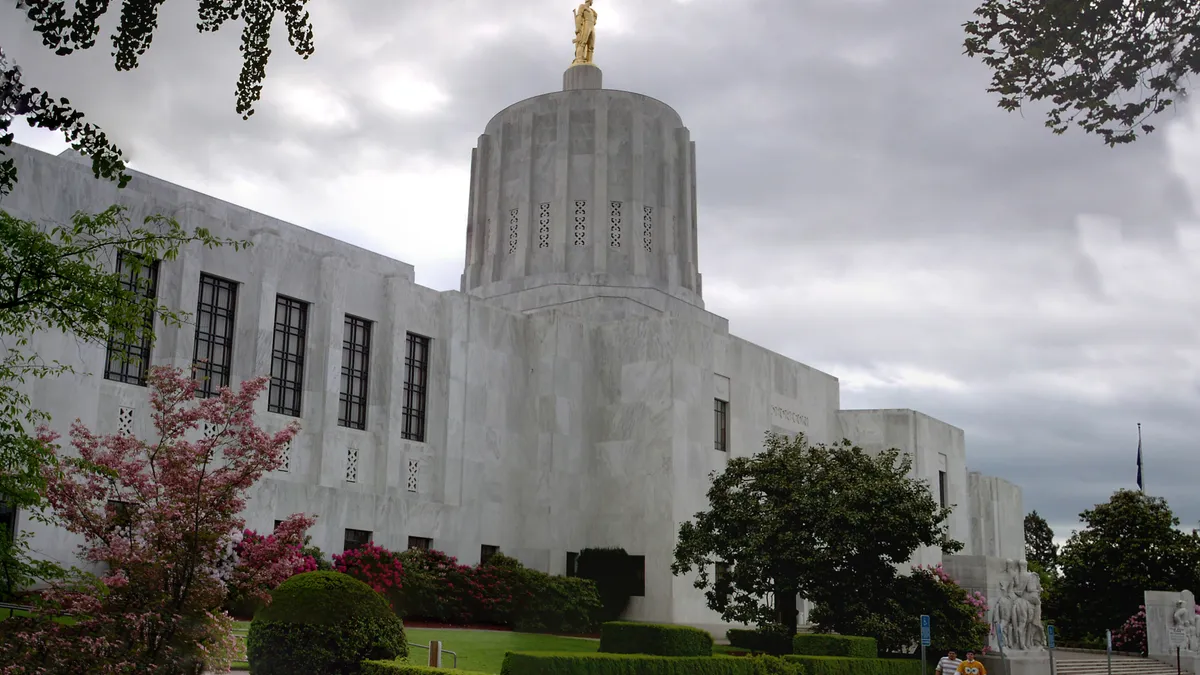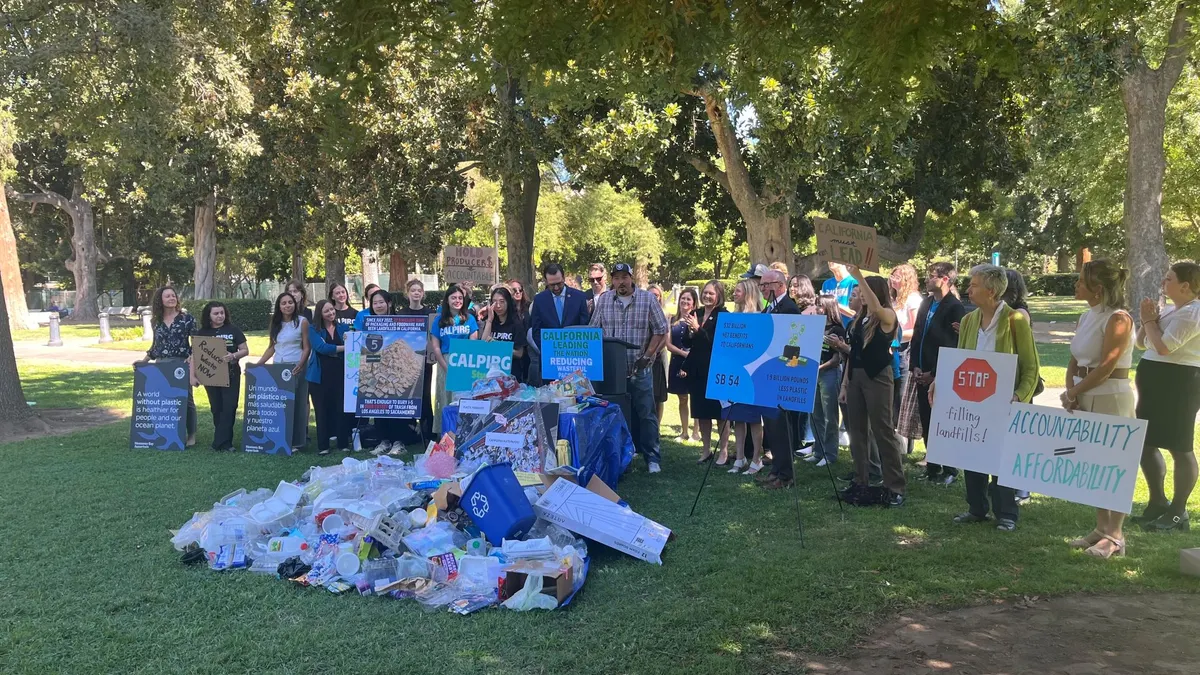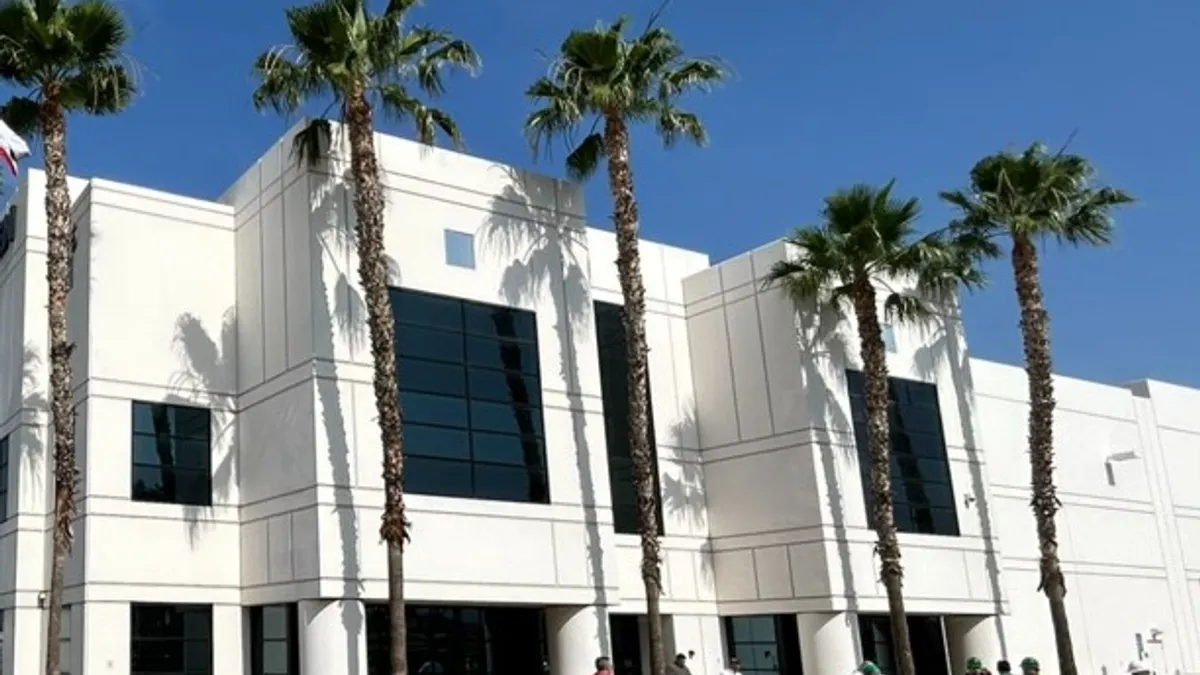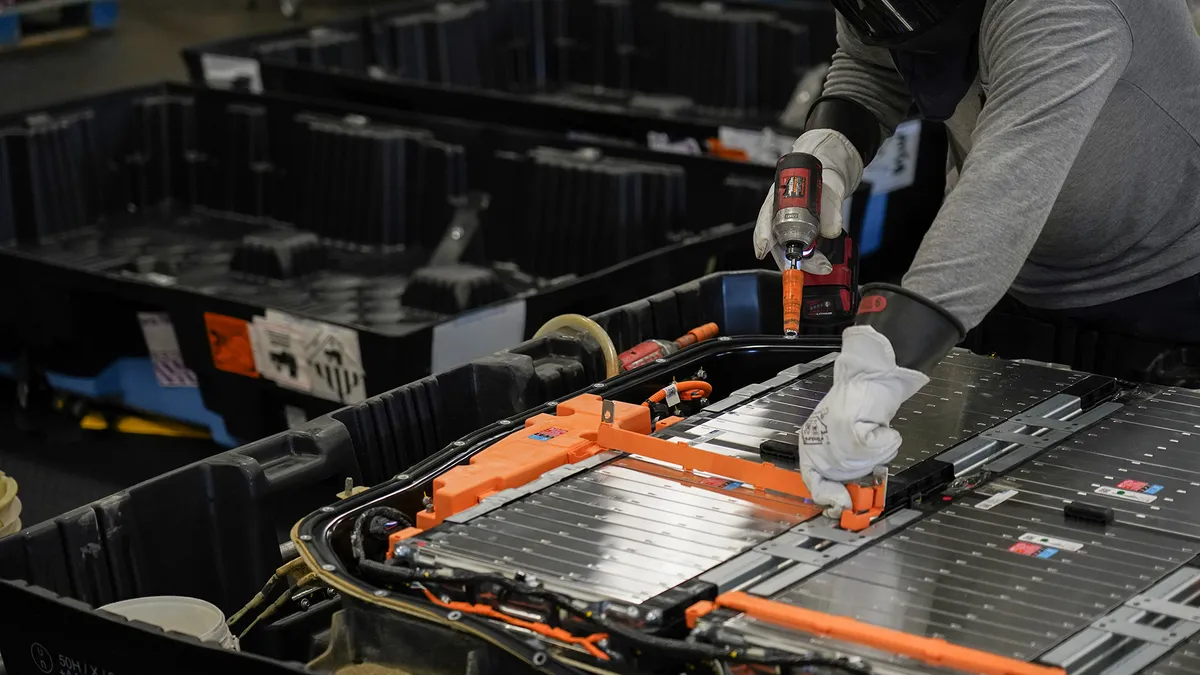Welcome to Scrap Collector, Waste Dive's Friday round-up of insights and stories you may have missed during the week.
WTE AND 'ZERO WASTE': SWORN ENEMIES, OR UNLIKELY ALLIES?
For many "zero waste" advocates, incineration is antithetical to everything the movement seeks to achieve — but according to Gregory Anderson, the New York City Department of Sanitation's (DSNY) recently-appointed assistant commissioner for policy and external affairs, it may be time to acknowledge WTE's necessary role in the path toward "zero waste."
Speaking at the 2019 North American Waste-to-Energy Conference (NAWTEC) in Reston, Virginia earlier this week, Anderson presented an overview of Mayor Bill de Blasio's 2030 "zero waste" to landfills goal. Per that ambitious — and, according to some, increasingly unattainable — target, the city has taken a multi-pronged approach to maximizing diversion, including:
-
Investing in state-of-the-art recycling infrastructure;
-
Expanding its curbside organics program (a temporarily suspended goal);
-
Eliminating non-recyclable materials, including single-use foam containers and plastic bags from the waste stream;
-
Banning disposal of e-waste and other toxics;
-
Implementing "vertical city" solutions for e-waste and textiles;
-
Promoting donation and reuse programs; and
-
Launching "zero waste" school programs.
However, noted Anderson, only 77% of New York's waste stream consists of potentially divertable or reducible materials, leaving 23% of the residential waste stream —including diapers, hygiene products and various plastics — unaccounted for.
That's where incineration comes in. The city's current residential disposal portfolio boils down to 67% landfill and 33% WTE. Covanta currently handles the WTE portion via a 20-year marine transfer station contract, as well as an ongoing relationship to take material at a New Jersey facility. The city's landfill arrangements entail sending material (much of it handled by Waste Management, which holds a key 20-year contract) to multiple East Coast states — in some cases as far as 650 miles away.
Achieving New York's 2030 "zero waste" goal, according to Anderson, means accepting incineration as "the preferable option to landfills."
"The best thing we can do with the remaining waste is send it to WTE," he told attendees. "That doesn't mean we think WTE is 'zero waste' in and of itself — but that's just the most realistic option going forward."
While this falls in line with the EPA's waste recovery hierarchy, the argument doesn't strike everyone as convincing. Few other major U.S. cites currently consider WTE to be superior to landfills, and anti-incinerator advocacy groups continue to push for the closure of all incinerators.
Well-publicized instances of community pushback, however, were barely mentioned during NAWTEC presentations. Attendees told Waste Dive they believe WTE still has a promising future in the U.S. — especially in the Northeast and other land-constrained regions. Stay tuned for more NAWTEC coverage next week.
IN OTHER NEWS...
Entrepreneurs pitch sustainable floating cities to UN — Fast Company
It sounds like something out of a Miyazaki film — but if Oceanix founder and CEO Mark Collins Chen has his way, you might find yourself living on a self-sustaining utopia floating somewhere above the ocean.
Chen, who developed the concept after assessing the threat of rising sea levels to his native French Polynesia, presented his plans at the UN this week: 4.5-acre hexagonal floating islands — each capable of housing 300 people, and each with its own dedicated use (healthcare, education, shopping, etc.) — that, when combined, form a small village.
Linking six of these villages would result in a small city designed to be entirely closed loop: water would be captured, waste reused, food grown on human-made islands outside of the city — all using only energy that can be harvested by the city itself. These sustainable technologies, Chen and his collaborators hope, might be applied to regular old land-bound cities as well.
"As you start thinking about recycling water and waste, there's no reason why what you learn would not apply to conventional [places] — where 90%, 95%, or 98% of people will be living," said economist and Nobel Prize recipient Joseph Stiglitz, as reported by Fast Company.
His reference to the "90%, 95%, or 98%" of the world's population, however, might strike some as telling: Oceanix's idyllic enclave, while ostensibly a global solution, seems almost necessarily reserved for the powerful and ultra-wealthy. A gorgeous sci-fi dream, to be sure — but one that will likely remain (literally) out of reach for the populations most impacted by climate change.
I'm extremely tired of designers treating climate change as a fun playful thing to beautifully render instead of a serious, generational political project that their real estate-driven, corporate design culture is actively making worse. https://t.co/KxFpL29TJc
— Billy Fleming (@JooBilly) April 4, 2019
Detroit lawmakers pushing for permanent incinerator ban — Fox 2
Last week's closure of the Detroit Renewable Power incinerator was hailed by many local groups as a definitive environmental justice victory — and lawmakers and activists are now working to make that a permanent state of affairs.
"Idling the incinerator is not enough — we need a permanent ban," local activist Rev. David Bullock told Fox 2. "Cities over 400,000 residents should not have to suffer from toxic air."
"We're going to make sure that our community is safe, is secure, that people can breathe the air and that they can drink the water," affirmed state representative Karen Whitsett. "And we're not going to stop until that happens."
Michigan currently has just one other MSW incinerator — a Covanta-operated facility owned by Kent County.
SEEN & HEARD
Our latest launch --> a weekly newsletter on recycling! Looking forward to reading more on this topic from @ColeRosengren, @rinasunshine_li and the @WasteDive team. https://t.co/9MlTD0GvVR
— Davide Savenije (@davide_savenije) April 3, 2019
Can recycling in the U.S. bounce back? Here at @CityLab, I looked for answers to that question through asking local recycling programs about the strategies they're working on to improve recycling. Here's what I learned ????
— Nicole Javorsky (@nicolejavorsky) April 1, 2019
" Concentrate on stemming the production of plastics" + "Address the production and availability of oil and natural gas feedstock as part of the production of plastics" says @MaxLiboiron to #FOPO @HoCCommittees, now studying plastics. Time to #BeatPlasticPollution . https://t.co/JQ5KsZSuiG
— Linda Nowlan (@Linda_Nowlan) April 4, 2019
Even in Berlin people need constant reminders on what to recycle. pic.twitter.com/e1FxFx42ca
— The Municipal Oracle (@MunicipalOracle) March 31, 2019


















